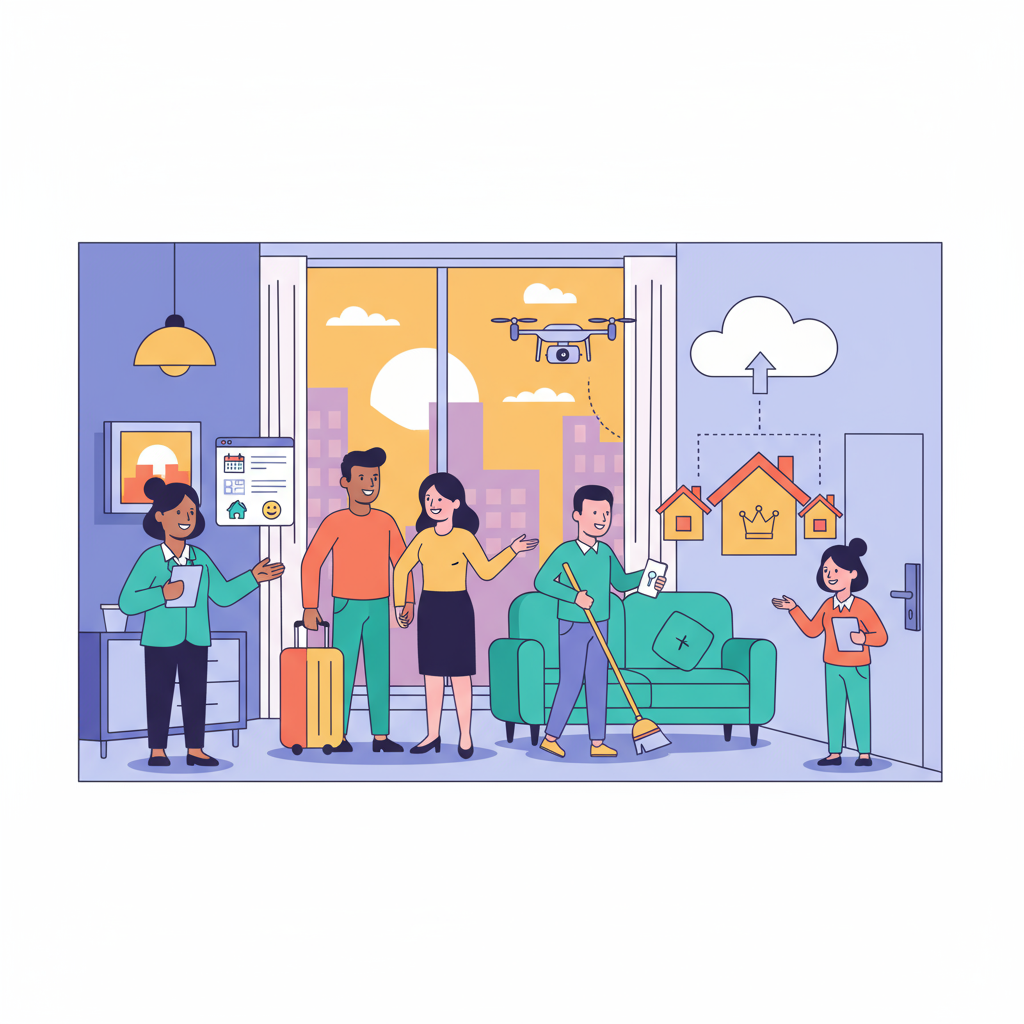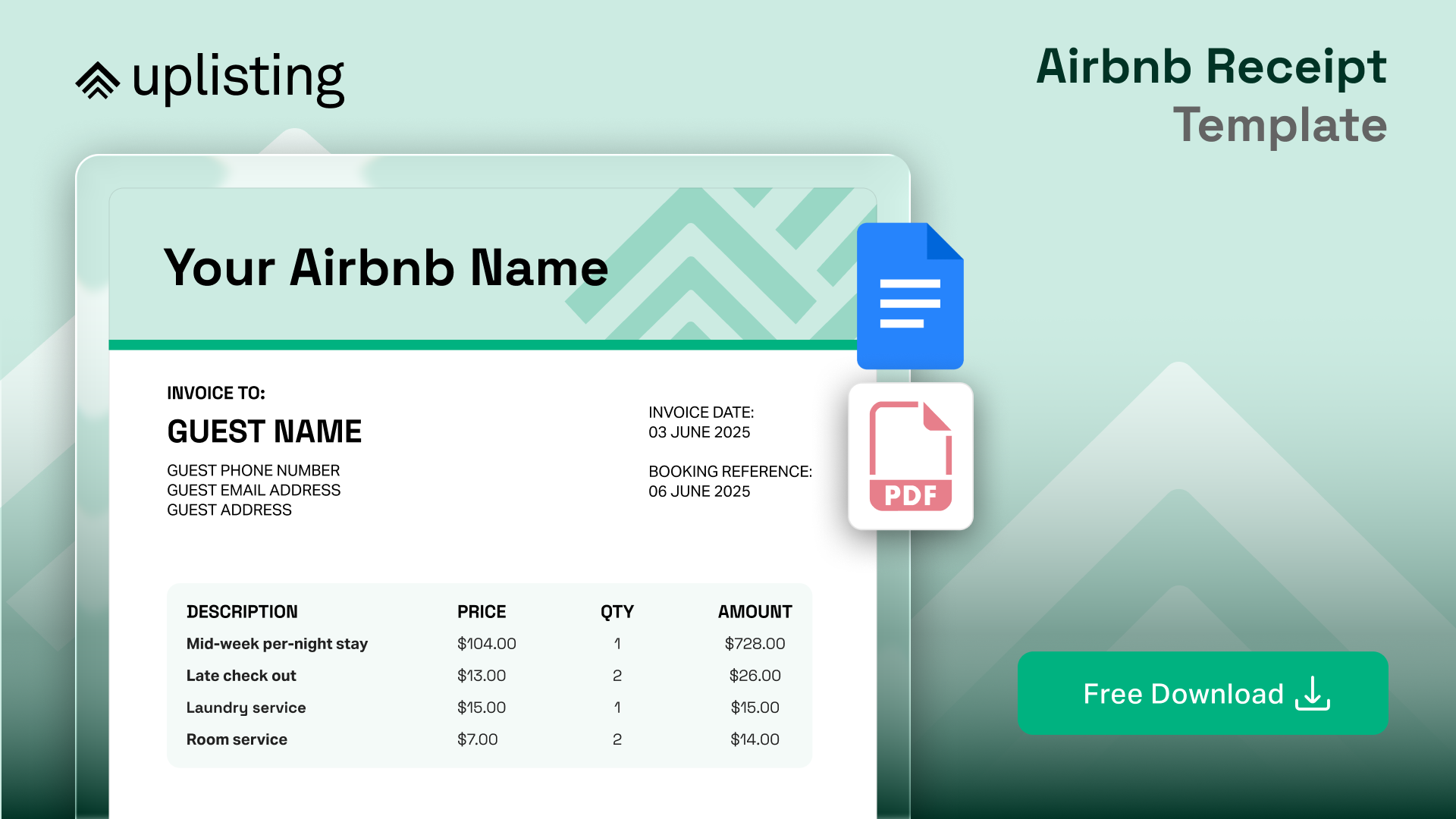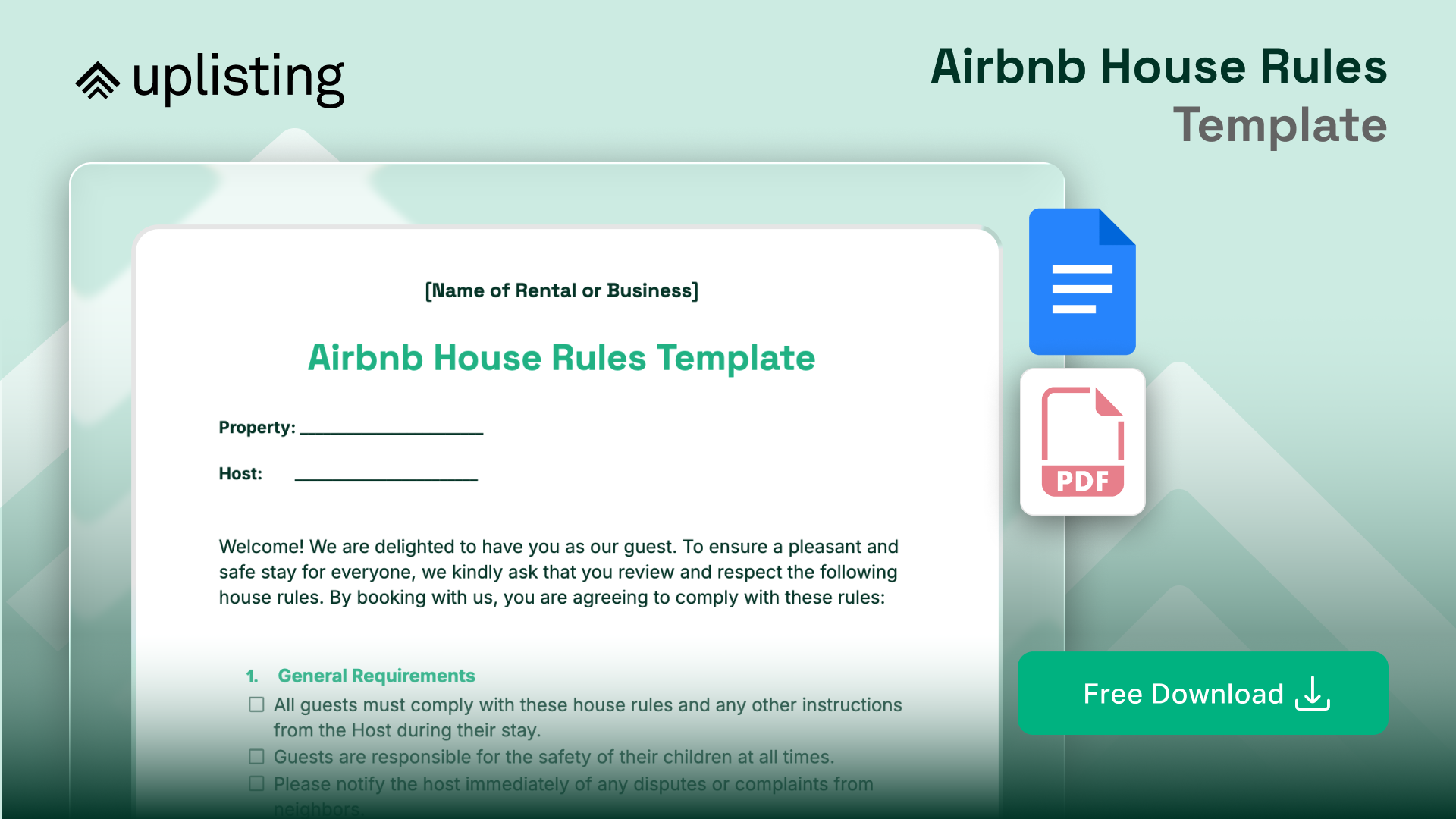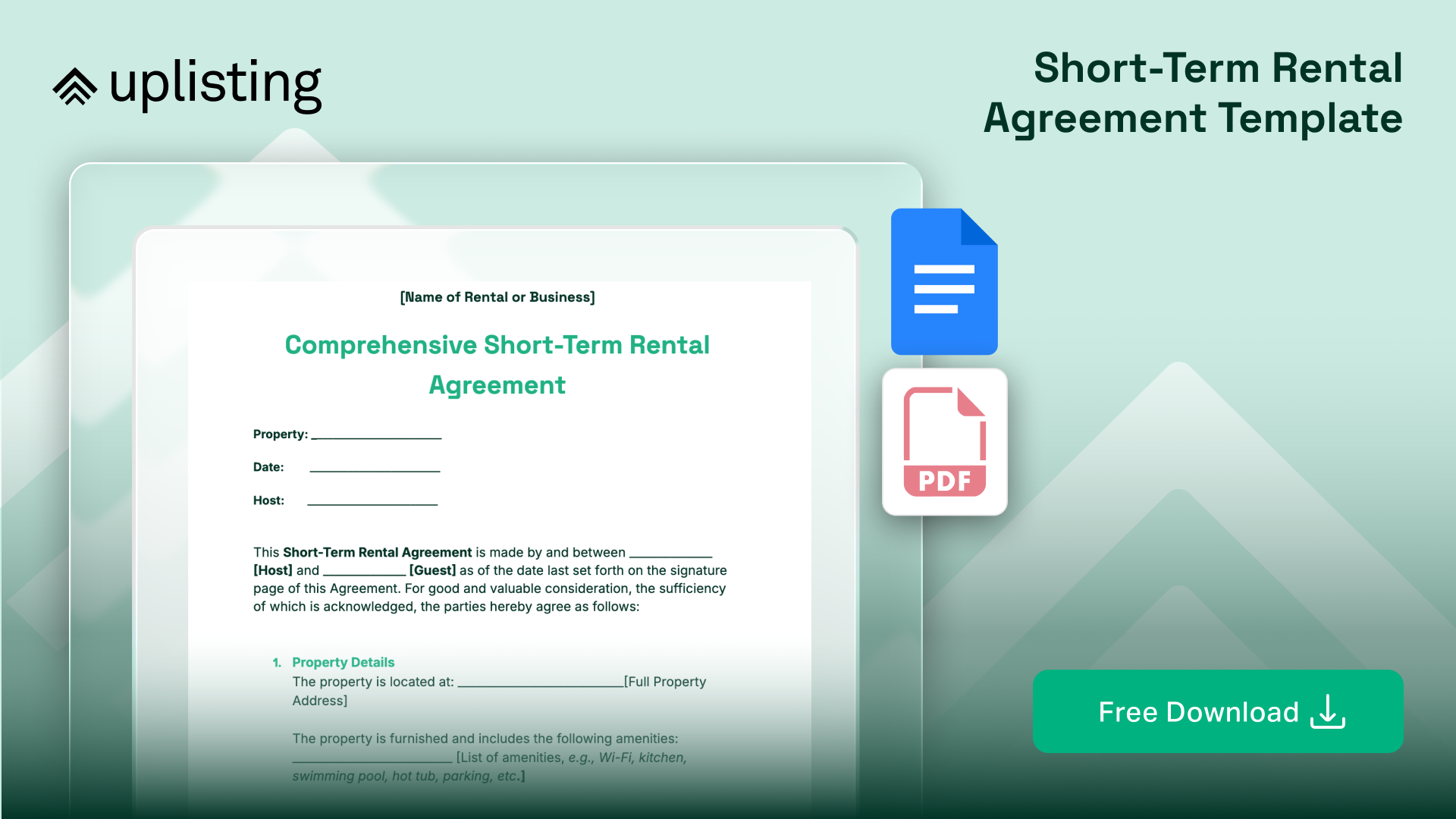Key Takeaways
You can launch a profitable Airbnb business by controlling properties you do not own through creative leasing and management agreements
Airbnb arbitrage gives you a way to build a short-term rental portfolio with lower upfront costs and faster scaling potential than traditional ownership
Efficient operations, legal compliance, and clear agreements with property owners are essential for long-term success
You’ve probably heard the stories. The host who built a six-figure Airbnb business without owning a single home. It sounds too good to be true, right? After all, how can someone profit from short-term rentals when they don’t even hold the deed?
The truth is, the Airbnb landscape has changed dramatically. Hosting isn’t limited to homeowners renting out their spare bedroom anymore. A new wave of entrepreneurs has discovered creative ways to enter the market without the hefty down payments, mortgage applications, or renovation budgets that used to keep real estate off-limits.
Instead of ownership, they leverage access, signing long-term leases, managing other people’s properties, or partnering with landlords who see the value in short-term rental income. This model, known as rental arbitrage, flips the traditional housing equation on its head. Rather than waiting years to save for a property, ambitious hosts can start building a portfolio today using smart negotiation, clear legal structures, and a knack for hospitality.
But here’s the thing: while it’s absolutely possible to succeed without owning property, it’s not a shortcut. The most profitable non-owner hosts operate more like business managers than casual hosts. They understand local laws, budget carefully, and use professional tools to run their operations efficiently.
That’s where platforms like Uplisting come in, helping these operators automate tasks, sync bookings, and scale multiple listings with the same level of precision as full-fledged property owners.
In this guide, we’ll break down exactly how to start an Airbnb business without owning property, legally, profitably, and sustainably. You’ll learn how rental arbitrage works, how to win over landlords, what startup costs to expect, and how to use automation to grow from one unit to a thriving short-term rental business.
Why You Don’t Need to Own Property to Start on Airbnb
Airbnb has evolved far beyond its early days of spare bedrooms and weekend rentals. Today, some of the platform’s most successful hosts don’t own a single home. Instead, they lease, manage, or partner on properties owned by others.
It’s a shift that’s redefined what it means to be a host. By using creativity instead of capital, these operators build profitable short-term rental portfolios without waiting years to buy real estate. It’s entrepreneurship through access rather than ownership; a model that opens the door to anyone willing to manage a property with care and professionalism.
At its core, this approach allows you to bypass the biggest obstacle most aspiring hosts face: the cost of property ownership. Down payments, mortgages, and maintenance are replaced with manageable startup costs like furnishings, permits, and tech tools. That means you can scale faster, test different markets, and diversify your income with far less risk.
The concept of rental arbitrage
The most common path is something called rental arbitrage, where you rent a property long-term, then re-rent it short-term on Airbnb or Vrbo. Your profit comes from the difference between what you pay each month in rent and what you earn from nightly stays.
But here’s where the professionals stand out from the amateurs: successful rental arbitrage depends on transparency and compliance. You’ll need written permission from the landlord, a solid understanding of local short-term rental laws, and systems to manage guests responsibly.
When handled correctly, rental arbitrage is a win-win: the owner gets reliable, well-maintained tenants and consistent rent, while you gain the freedom to operate a thriving Airbnb business without ever signing a mortgage.
Enjoy the confidence & focus you need to scale your vacation rental business
Book more while doing less
With a reliable VRM solution you can trust, Uplisting can help you grow your business without wasting time on double bookings, unhappy guests, upset clients and worrying what could go wrong next.
How to Legally Start an Airbnb Without Owning Property
Starting an Airbnb business without owning property isn’t just about finding the right apartment or house, it’s about doing it by the book. The short-term rental industry is heavily regulated, and every city, county, and even neighborhood can have its own set of rules. If you skip this step, you risk fines, eviction, or even getting banned from platforms altogether.
That’s why successful rental arbitrage operators treat compliance as their foundation. Before you launch your first listing, take time to research, communicate, and protect yourself with the right paperwork.
Check local laws and zoning rules
Every city has its own short-term rental framework. Some require business licenses or registration numbers; others limit the number of days a property can be rented. Zoning rules may restrict short-term rentals to specific neighborhoods or building types.
Spend time on your local city website, read through the short-term rental ordinance, and confirm whether the property you plan to rent qualifies. If in doubt, reach out directly to the housing or zoning department — a quick email can save you months of future trouble.
Get written permission from the landlord
Even if your lease doesn’t explicitly mention short-term rentals, you can’t assume it’s allowed. You’ll need written consent from the property owner or management company.
When approaching a landlord, be transparent. Explain how Airbnb hosting works, how you’ll maintain the property, and how they’ll benefit — steady rent, free maintenance, and lower vacancy risk. Treat it like a partnership, not a request.
Secure the right permits and licenses
Depending on your city or state, you may need a short-term rental license, a business registration, or even a sales tax ID. Each document proves that your operation is legitimate and above board.
If your city requires inspections or safety certifications, schedule those early. Fire alarms, carbon monoxide detectors, and emergency exits aren’t just compliance checkboxes — they also protect your guests and your reputation.
Get proper insurance coverage
Standard renter’s insurance won’t cut it for short-term rentals. You’ll need a vacation rental or short-term rental insurance policy that covers liability, guest damages, and loss of income in case of cancellations or accidents.
Providers like Proper Insurance or Safely offer coverage designed specifically for Airbnb-style businesses — a worthwhile investment that protects both you and the property owner.
Keep everything in writing
Every agreement, from your lease addendum to your cleaning contract, should be clearly documented. These records prove you’re running a legitimate business, not breaking lease terms. They also build trust with property owners, guests, and local authorities if questions ever arise.
In short: legality isn’t the boring part. It’s the part that lets you sleep at night! When your business is structured properly from day one, you can focus on guest experience and profitability without worrying about what’s happening behind the scenes.

Setting Up Your First Rented Property for Airbnb Success
Once you’ve secured a property and signed the lease, the real work begins; turning an empty space into a guest-ready experience that feels intentional, comfortable, and memorable. Guests don’t care whether you own the property or not. What they notice are the details: how easy check-in feels, how clean the space is, and whether the lighting and linens make them feel at home.
The difference between a one-time rental and a thriving Airbnb business lies in presentation and consistency. Here’s how to make your first property stand out from day one.
Furnish for both comfort and durability
It’s tempting to start on a budget, but skimping on furniture often backfires. Choose high-quality, mid-range pieces that can withstand frequent use. Opt for neutral tones, washable fabrics, and minimal clutter. A simple, cohesive look photographs well and appeals to a wider audience.
Focus on the essentials: a comfortable mattress, blackout curtains, bright lighting, and enough storage for guests staying longer than a weekend. Then add small touches that elevate the experience, like a full-length mirror, soft throw blanket, and locally inspired décor. These are the details that earn five-star reviews.
Invest in functionality and smart tech
Efficiency is the secret to managing multiple listings successfully. Equip your rental with smart locks, Wi-Fi-connected thermostats, and easy-to-use appliances. A well-labeled coffee machine or a clearly written TV guide can save you dozens of repetitive messages from confused guests.
Smart home devices also help you manage from afar, adjusting temperature settings, granting access to cleaners, or checking on energy usage without stepping foot inside.
Prioritize reliable Wi-Fi and workspace areas
Guests expect strong internet, no exceptions. Whether they’re working remotely, streaming a movie, or planning their next adventure, Wi-Fi reliability is one of the top factors influencing reviews. If possible, offer a small desk or designated workspace. Even if it’s just a corner with a chair and good lighting, it signals professionalism and thoughtfulness.
Create a listing that builds trust
Your photos and description are your storefront. Hire a professional photographer, or use a high-resolution camera with natural lighting to capture the space at its best. Avoid overly edited images — guests value accuracy more than perfection.
In your listing copy, be transparent about the property’s layout and any quirks (“The bedroom skylight lets in morning sun, light sleepers may want an eye mask”). Honest communication sets expectations and prevents negative reviews later.
Add finishing touches that spark delight
The final layer of success comes from personality — the thoughtful extras that make your place feel alive. Add local artwork, a small welcome gift, or a handwritten note. Stock basic pantry items, offer a guidebook with neighborhood favorites, and use scent strategically (a light candle or diffuser goes a long way).
When guests sense intention behind the details, they’re far more likely to leave glowing reviews and recommend your property to others.
All-in-one Vacation Rental Software and Channel Management System
Get started in seconds by connecting Airbnb
Manage short-term rentals & bookings, message guests, take payment, and so much more. All in one easy-to-use platform (that never double-books).
Building an Airbnb Business That Scales (With or Without Ownership)
Owning property used to be the barrier to entry in the short-term rental world. Now, it’s just one of many paths. Rental arbitrage and property partnerships allow ambitious hosts to grow fast, reduce risk, and enter markets that once felt out of reach, all without signing a single mortgage.
But success without ownership still demands structure. The best operators act like business owners, not hobbyists. They track performance, automate communication, and manage every listing with precision, whether they lease one apartment or fifty.
That’s where Uplisting comes in. As an all-in-one property management platform, Uplisting gives non-owners the same professional edge as large-scale operators: automated guest messaging, synced calendars, dynamic pricing, cleaning schedules, and detailed performance insights, all from one dashboard.
With the right systems in place, running an Airbnb business without owning property is scalable. You can focus on relationships, growth, and guest experience while Uplisting handles the day-to-day operations that keep everything running smoothly.
Ready to take control of your operations and scale faster with less stress? Sign up for Uplisting today.
FAQs About Starting an Airbnb Without Owning Property
Curious about how to start an Airbnb without owning property? You’re not alone. Many operators want to grow a short-term rental business quickly and avoid massive upfront costs. Here’s what you need to know to get started and keep things running smoothly.
What is Airbnb rental arbitrage, and is it legal?
Airbnb rental arbitrage means you lease a property from a landlord and list it for short-term stays to earn more than you pay in rent. Local short-term rental rules and landlord permissions set the ground rules. Always get written approval and check city or county restrictions before taking a single booking.
How can I convince landlords to allow Airbnb hosting?
Most landlords look for steady rent, low vacancies, and a well-kept property. Offer guaranteed payments, proactive cleaning, and quick responses to guest issues. Share your management plan, highlight your commitment to property care, and show how short-term rentals can benefit the owner. A transparent approach usually wins owners over.
What are the biggest risks of running Airbnb properties you don’t own?
Leases can end suddenly, city rules may shift overnight, and owners sometimes decide to reclaim their space. Skipping guest screening or failing to communicate with neighbors can lead to headaches. Keep agreements tight, run clean operations, and stay ready for any curveballs.
How much startup capital do I need for one rental unit?
You’ll need enough cash to cover first and last month’s rent, a security deposit, furniture, supplies, and professional photos. Compared to buying property, your upfront spend is lower, but you still need reserves for slow months or emergency repairs.
Can I scale to multiple listings if I don’t own any property?
Absolutely. Scaling up works when you earn trust from landlords, set up reliable tools for operations, and manage bookings, cleaning, and guest communication across every unit. Operators who figure out how to start an Airbnb without owning property often find that once the first property runs smoothly, adding more is all about dialing in the process—not collecting deeds.
















.png)

